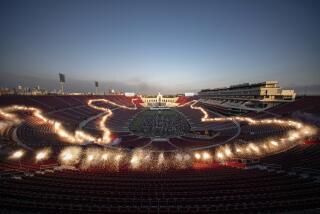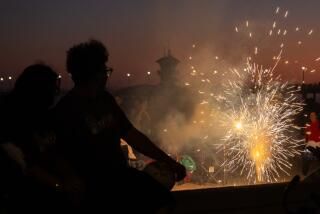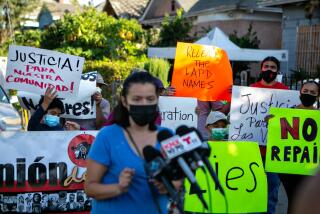Exploding the Fireworks Safety âThreatâ
As Americans celebrate their freedom on Sunday, it will be with a certain irony: Not all Americans have the freedom to celebrate the holiday with the traditional festive bang. Though about 70 million of us live in states that allow all sorts of fireworks and firecracker use, 50 million other Americans who live in nine states, including New York and Arkansas, need a permit to even light a sparkler. The state of California bans some types of fireworks and allows cities to expand what is prohibited. Safety is the major concern of those who ban our celebratory backyard light and noise shows, but their fears are overblown.
In fact, banning personal use of fireworks may actually result in more accidental fires because some of those who try to avoid getting caught set them off in remote fields, causing fires that take longer to discover.
This issue is badly distorted by the media. A search of the top 100 newspapers found 140 news stories in the last year warning that fireworks could be deadly if used improperly. But, despite this edge to the coverage, on average just six people a year died in fireworks-related incidents from 1990 to 2002. And many of those deaths occurred at professional fireworks displays.
By comparison, about 20 times more children under the age of 10 drown in home bathtubs each year than the number of people who are killed in fireworks accidents. Despite the fears raised by the media, fireworks deaths are just not something that people should spend any time worrying about.
It is hard to see much of a relationship over the years between fireworks use and deaths. Though almost exactly the same number of people died in 1990 and 2002, fireworks use grew almost every year, soaring from 68 million pounds of explosives used to 221 million pounds.
States such as New Jersey that have adopted more stringent regulations or bans havenât seen significant drops in the number of fireworks-related deaths, in part because there were few such deaths to begin with. During the last three years, states with bans actually had a higher fireworks-related death rate (.018 per million people) than the states without restrictions (.014 per million).
Injuries are much more difficult to track, but there were an estimated 8,700 fireworks- related injuries treated in hospital emergency rooms during 2002, the vast majority relatively trivial. This is only a fraction of the 208,000 injuries suffered in bathtubs from falls, scalding water and even electrocution.
The simple volume of the explosives sold across the United States raises a question: How effective can any ban possibly be, short of erecting a wall around a state?
In Los Angeles, a city that Mayor James K. Hahn claims has âzero tolerance for fireworks,â a man was arrested last week for storing 15 tons of illegal fireworks in different parts of the city. Given how close this is to the Fourth of July, who knows how many fireworks he had already distributed?
Educating the public about how to safely use fireworks is preferable to bans. Such education is not just about where and how to set off the explosions. William Weimer, vice president of Phantom Fireworks, recently made a pretty simple point: A lot of the accidents result from people drinking too much alcohol. As he put it, âIf youâve been drinking, you should have a designated igniter, just like you should have a designated driver.â
Government can protect people from only so much, and if we banned all the products that caused more deaths and injuries than fireworks, there would be virtually nothing left to use. After all, what is the Fourth of July celebrating if we criminalize even the tiny risks associated with fireworks?
More to Read
Sign up for Essential California
The most important California stories and recommendations in your inbox every morning.
You may occasionally receive promotional content from the Los Angeles Times.










